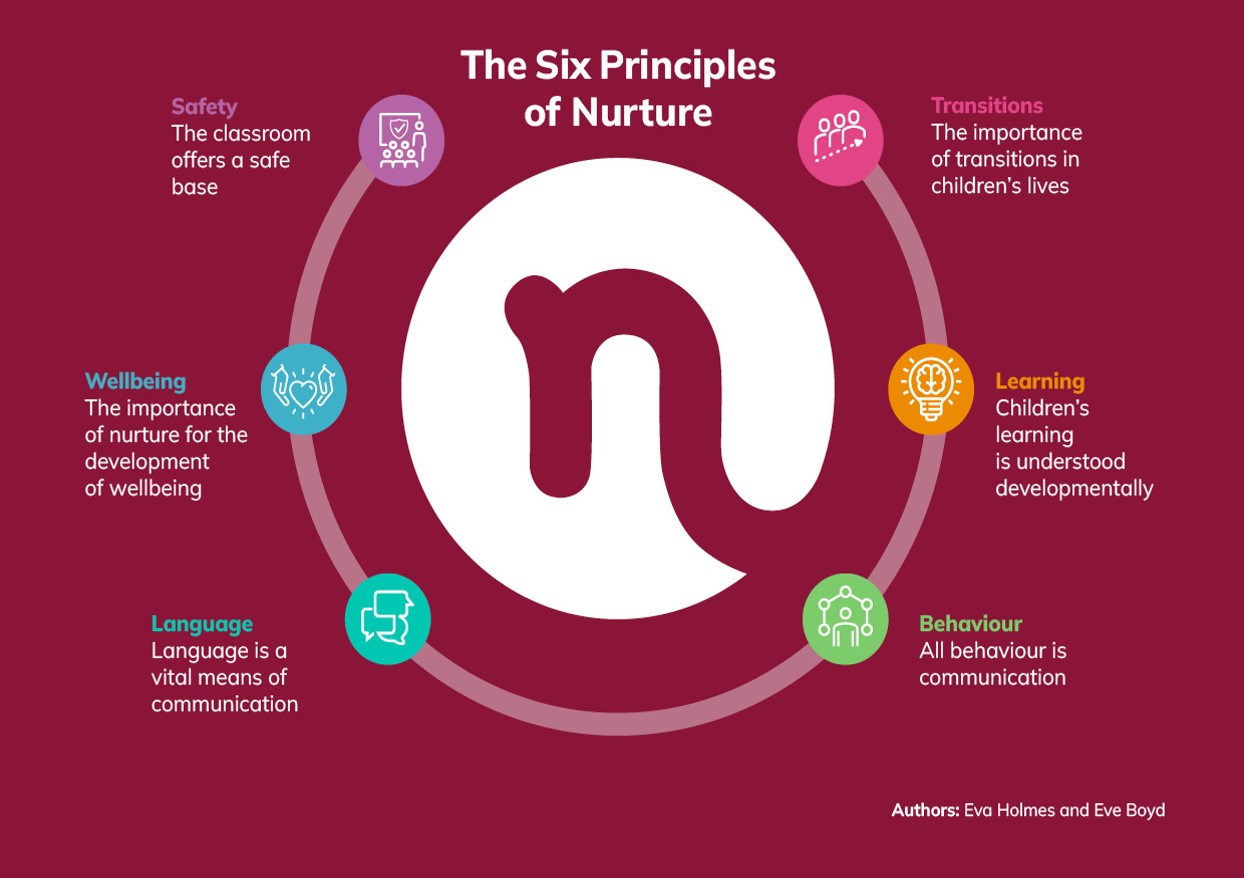Nurture School
“You cannot make people learn. You can only provide the right conditions for learning to happen.”
~ Vince Gowmon~
At the Whiteoak Academies, we are working towards achieving our Nurture UK accreditation to become a "Nurture School".
As a school we aim to continue to grow and develop our warm, safe and inclusive environment so that all children and staff can flourish. Our motto "Planting dreams. Nurturing hearts. Growing Minds" and vision are embraced by everyone in our family of schools and underpinned by our core values so there is a collective understanding that every day we strive to be better and nurture each and every individual to be the very best they can be.
What is the 'Nurture' approach?
Nurture was developed by Marjorie Boxall in the 1970s in London. She saw the impact that emotional needs had on the ability of a child to access learning. It is an evidence-based approach aimed at improving wellbeing, behaviour, attendance and this in turn leads to better attainment and reduced behaviour barriers. The 'Nurture' approach considers how a child’s social environment affects their emotional wellbeing, their social skills, and how ready they are to engage at school and in the wider community.
We are a Nurture School:
At the Whiteoak Academies, our aim is to ensure that we provide an inclusive, creative curriculum that can be accessible to all. For a small minority of children, the demands of a mainstream classroom can be overwhelming. We believe it is important to ensure our pupils are in a nurturing environment that supports them to learn. Nurture helps us to develop our social and emotional skills to support our development as well as to develop our resilience - one of our school values.
The Nurture Principles:
The Nurture Principles are the core principles that individuals base their practice on and are key to any Nurturing school. These basic principles are underpinned by the essential components of trust and relationships and are embedded within both our Whiteoak educational and behaviour curriculums.
These are:

- The importance of transitions in children’s lives.
Staff who acknowledge the feelings aroused by transitions and who understand that even small changes in routine (eg, a visitor, school photos, going to lunch) can be overwhelming and unsettling for some children.
- Children’s learning is understood developmentally.
Independence develops through dependence. Staff responding to children at their emotional/development level enables them to move on.
- All behaviour is communication.
Children and adults use behaviour to communicate how they are feeling, sometimes when they don’t have an opportunity to verbalise what they are saying or sometimes when they can’t find the internal resources to translate their feelings into language. At the Whiteoak Academies we have our own behaviour curriculum that focusses on developing good behaviour for learning, alongside developing nurturing and respectful relationships between staff and pupils. Further information on our behaviour curriculum can be found here.
- Language as a vital means of communication.
Some children and adults in the school community need to be helped to understand and to express their feelings and given opportunities for extended conversations.
- The importance of nurture for the development of wellbeing and self-esteem.
Staff listening and responding to children in ways that shows they are valued and thought about or kept in mind.
- The school offers a safe base.
Importance of structure and consistency with firm, clear boundaries and adults and children working together supportively.
“If children feel safe, they can take risks, ask questions, make mistakes, learn to trust, share their feelings, and grow.”
~ Alfie Kohn ~
How we identify when and what support is needed:
Nurture approaches have been an educational intervention since the 1960’s developed by Majorie Boxall. As part of our Nurture approach we use Boxall Profiles. These are an assessment tool for identifying the pupils’ obstacles to learning which then allows the planning of effective intervention. It can highlight a wide range of concerns that might not be initially obvious and help ensure transparency in communication between staff with the school setting and can also open discussions with parents.
The Boxall Profile consists of two sections:
- Developmental strands which describe different aspects of the pupil’s developmental process.
- Diagnostic profile describing behaviours that inhibit or interfere with the pupil’s involvement in school.
An intervention approach was devised to improve the social, emotional development of such children, which in turn will improve their cognitive functioning and learning.
With early identification of potential social, emotional, behavioural and/or mental health issues we aim to use the Boxall Profile assessments for children who may find this challenging, through the six principles embedded in our curriculum.






